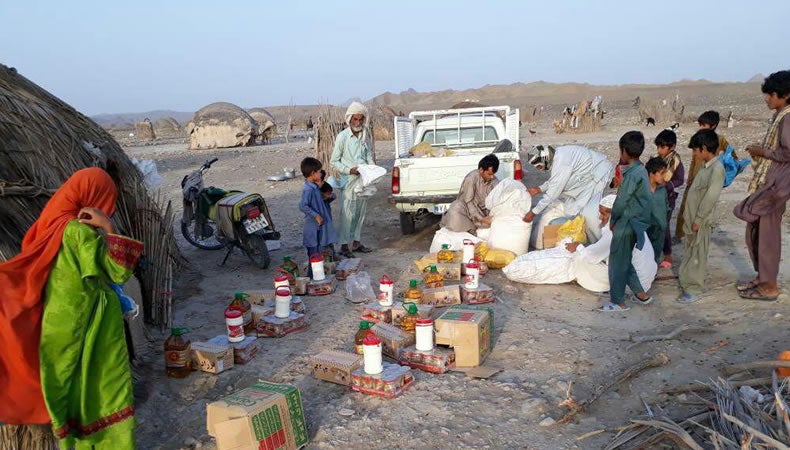Lebanon is reeling through the worst financial crisis of modern world and the victims are the poor Lebanese who are trying to make a living out of garbage. The streets of Beirut have gone dark at night from lack of electricity, apart from the single lights of headlamps worn by poor Lebanese people, out on the streets in search of some scrap to sell for some money. Such is the life of poorest of poor in Lebanon for whom biggest commodity has now become trash.
The “scavengers” have a way of marking their territory with growing desperation among the poor for trash – some would mark their area with graffiti while others with trash cans. Some families also sell their recyclable things just because they can make some US dollars out of them, which is much higher than the collapsing currency of their country. “There’s a lot of poor people like me,” said Hoda, a 57-year-old Lebanese mother who is now scavenging to make some money. “But people don’t know it. They know what they see, but not what’s hidden.”
“When dollars started to rise, people couldn’t afford to eat and they started scavenging, and each started to have their own bin,” Mohammed said. “If one is standing by a bin and another scavenger comes, a fight will break out.”
This present condition in Beirut shows how the situation has come down to. Not long ago, Lebanon was known its spirited entrepreneurship drive, bolstering independent banking system and a vibrant lifestyle. The current situation is not due to decades long civil war like in other regional countries, but because of the corrupt governance in past two years that has calcified the situation of Lebanese people. The elite rulers of Lebanon, who are indifferent to the people’s condition, have been in power since end of 1975-90 conflict but last two years have been the last straw in sack.
Hyperinflation has made everything unaffordable or not available. Banks have drastically cut down withdrawals and amount transfers. Country’s population has plunged into poverty. Last years due to negligence by authorities, trash has been piling up along the streets. The problem of trash was earlier too, but now it has brought opportunity to people.
“Nowadays, we go to the dump where we sell what we collect, only to find Lebanese people getting out of their cars to sell their recyclables,” said one Syrian. “Restaurant employees and building janitors also started to sort trash in order to sell it before throwing the rest out.”


